‘It’s important people understand that LGBTQ people play football – and that we’re actually just as good’
Stonewall FC player Jehmeil Lemonius talks LGBTQ visibility in sport as he joins adidas Originals’ Superstar campaign.
By Will Stroude
Whether it’s being talked about by former Manchester City star Joey Barton or explored on the small screen in Coronation Street, the issue of LGBTQ visibility in football has been a hot-button issue for years now.
But while much of the discourse has revolved around the lack of out players in the Premier League, that discussion minimises the strides that are being made across the game, not least by LGBTQ teams such as Stonewall FC.
Based in the London, the inclusive squad is the first LGBTQ FA Chartered Standard team and stand as Britain’s top-ranking LGBTQ team.
Stonewall FC Campaigns Manager Jehmeil Lemonius has been with the club for several years, and credits the team with providing a vital outlet for LGBTQ footballers who might have previously been turned off from the sport.
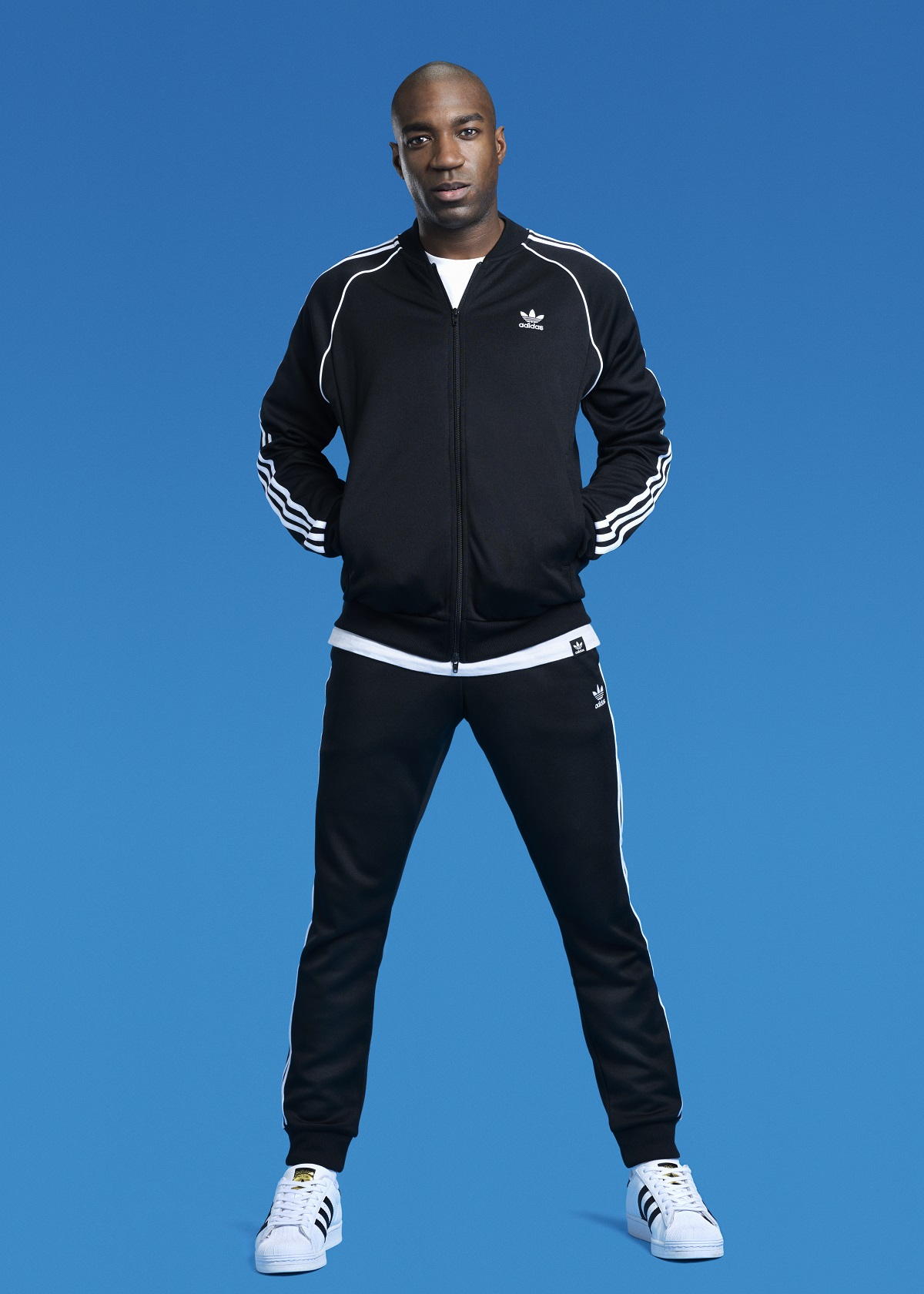
Photography: Rebecca Naen
As Jehmeil joins adidas Originals’ Superstar campaign, which is shining a spotlight on the sports teams inspiring positive change in local communities through its tagline ‘Change Is a Team Sport’, we caught up with the east Londonder to find out how Stonewall FC cultivates a culture that the profressional leagues could do with emulating…
Do you think having more LGBTQ representation in sports can help youngsters feel comfortable with their sexuality?
Absolutely. Visibility is so extremely important, it’s important to be seen and for voices and experiences like yours to be platformed and heard. There is a saying, ‘you can’t be what you can’t see’, which is why I try and be as visible and as vocal as possible. In life there are a number of glass ceilings that exist and difference makers, trailblazers are there to show people that those ceilings do not and should not impact people reaching their full potential.
How has being part of Stonewall FC helped you personally?
Being a part of this club has massively helped with my overall wellbeing: obviously the physical wellbeing aspect is clear, but even more so mentally. Growing up and playing football in spaces where you are constantly editing yourself or hiding part of your identity can be extremely taxing. It’s not just enough to be accepted or tolerated, it’s even more important to be celebrated. Not just with being LGBT but with other elements of peoples identities that others may feel are taboo or go against the norm.
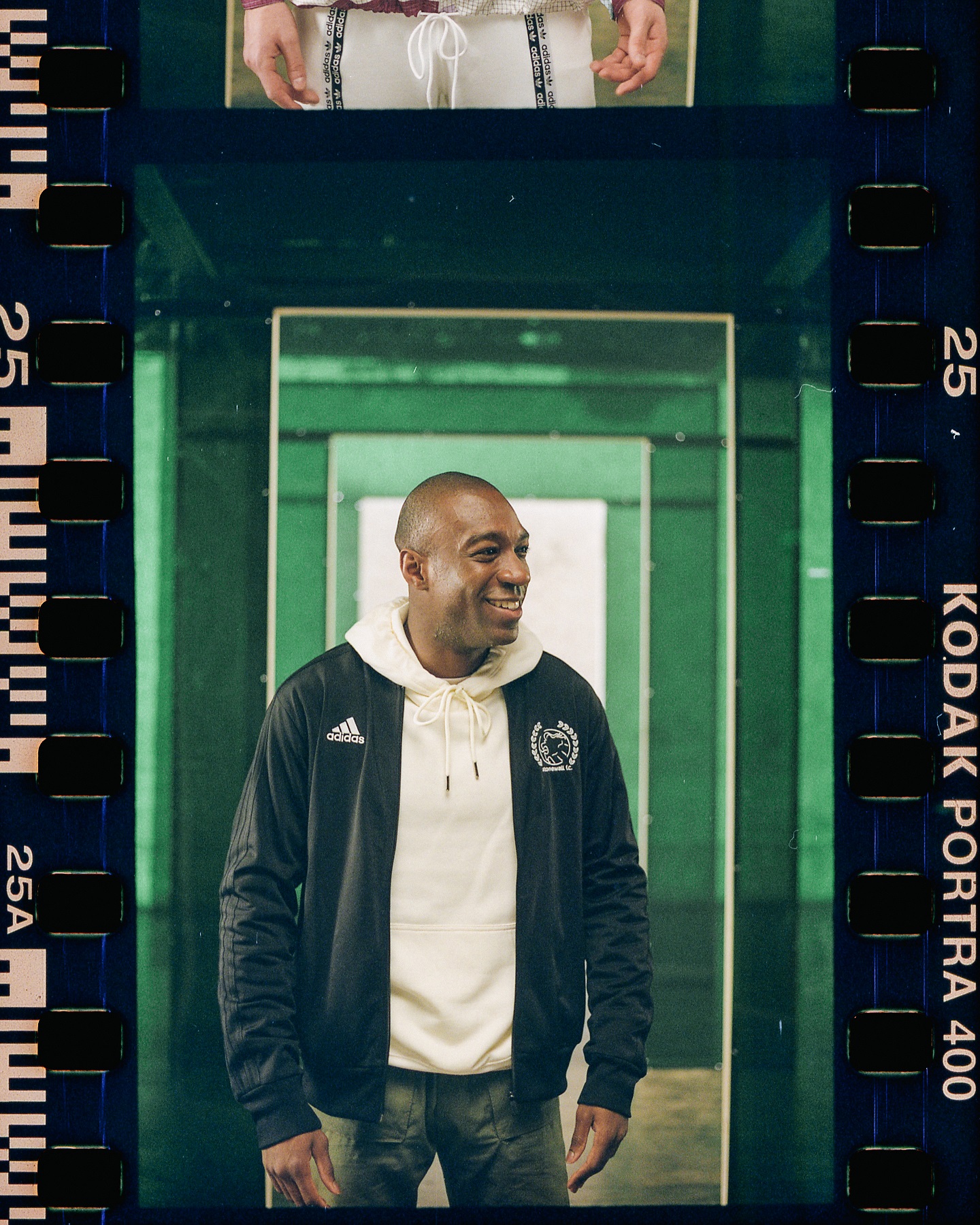
Photography: Rebecca Naen
When did you realise you were gay?
Ever since I can remember I have always known I was different. Coming to terms with your own sexual orientation looks different to everyone, and am acutely aware that my privilege lies in the fact that my gender expression has allowed me to explore that journey in a safe way, in my own time and under my terms. Not all LGBT people have that.
Did you always want to be a footballer?
Yeah, growing up in Leytonstone, east London, it was pretty rough. There weren’t many visual representations of success shown to me outside of being a footballer or making music. I can’t really sing or dance, so football was always going to be what I gravitated towards. I was also born in the same hospital as David Beckham, so like many, I was obsessed with being Becks and playing for Manchester United!
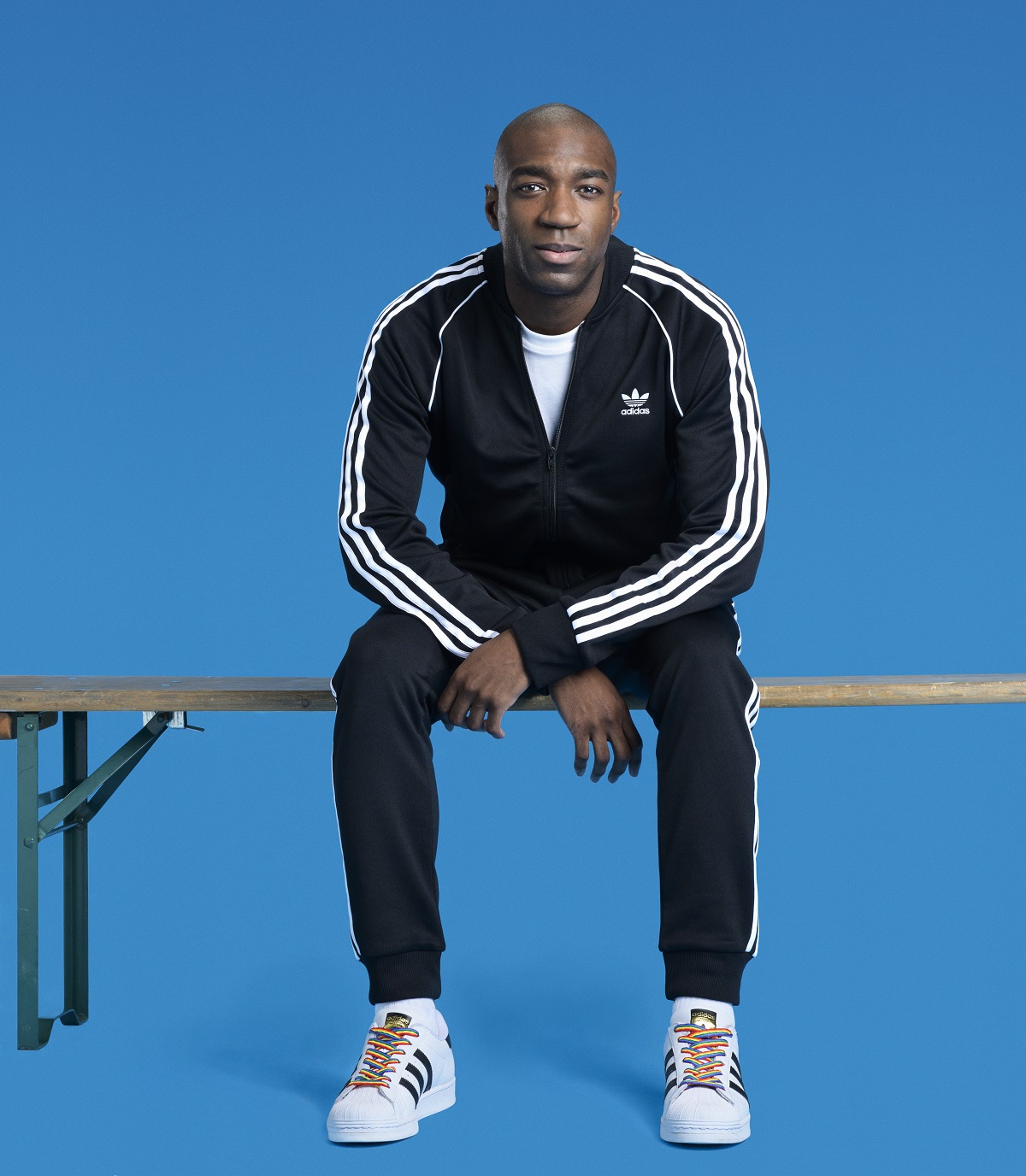
Photography: Rebecca Naen
Before joining Stonewall FC, did you ever feel that your sexuality would prevent you from enjoying the sport?
Absolutely. Coming to terms with your sexual orientation at what is already a really confusing age for young people was extremely stressful. Add on top of that trying to focus on playing football at the highest level you could, a lot of energy went wasted on just trying to belong, and come to terms with things. Naturally, during that process, motivation drops and doubt creeps in about whether these are spaces you can actually reconcile both elements of your identity.
Do you think attitudes towards LGBTQ sportsmen are changing? Are teams like Stonewall FC playing a role in changing these attitudes?
Yeah, I think you can say that for sure. If you look back to the days of Justin Fashanu, who’s just been inducted into the National Football Museum Hall of Fame, we have come a long way and learnt a lot of lessons. Even if you take Stonewall FC, we are lucky to have members who founded the club still playing, so we hear regularly what they had to ensure in their time. Incidences aren’t nowhere near as frequent these days – however I think that points to the power of being visible and operating in mainstream leagues. It’s important for people to understand that LGBT people play football, and exist in these spaces, and that we are actually just as good.
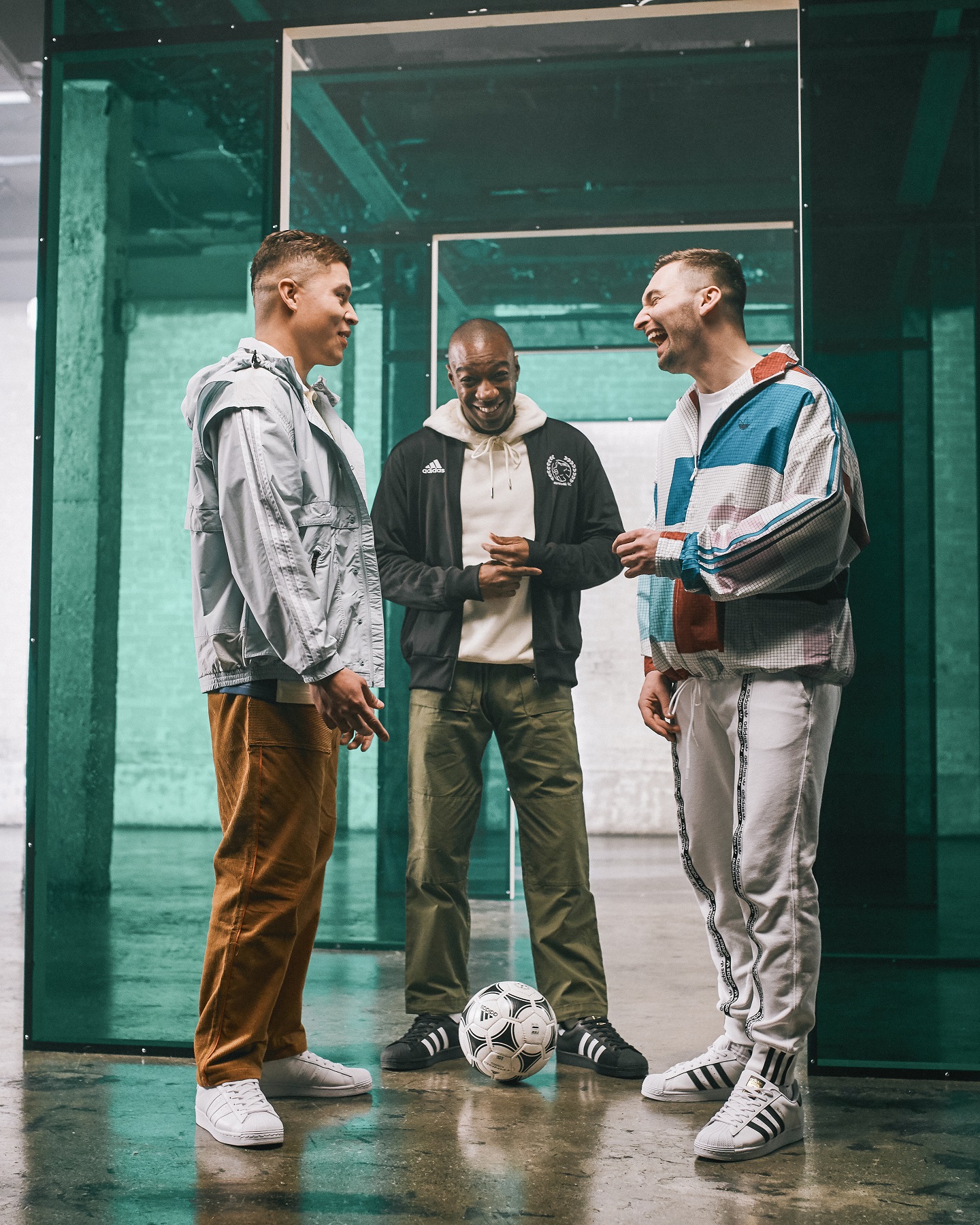
Photography: Rebecca Naen
We spoke to Olympic skiier Gus Kenworthy last year, who believes one reason professional athletes may struggle to come out is because they fear losing sponsorships. Do you agree?
I think it’s difficult to put it down to just one reason, the barriers are multifaceted. Whilst I agree that for sure sponsorship may be a fear for some athletes, but I think in most cases, athletes have trained their lives and have made it into a sport they have dreamed about being successful in their whole existence, and ultimately all they want to do, is play football, or play rugby, or play tennis. They don’t want to be known as the gay this or that, even if they are. The biggest part of their identity is in fact being just footballer or rugby player – so during that time, being gay, bi or even questioning isn’t a big deal for them and isn’t a huge part of their identity at that moment in time.
Do you think there will ever be a day where someone’s sexuality won’t ever be an issue in the sporting world?
If I’m being honest, no. I don’t think we can kid ourselves to thinking that homophobia, biphobia, transphiobia, or even racism and sexism will just cease to exist. I think our task is to massively reduce it so that its safe and the cultures don’t dictate that these spaces aren’t for a particular type of person. But sadly bigots will always exist and people will always target people for one reason or another, but make no mistake, these people are a loud minority and not the majority.
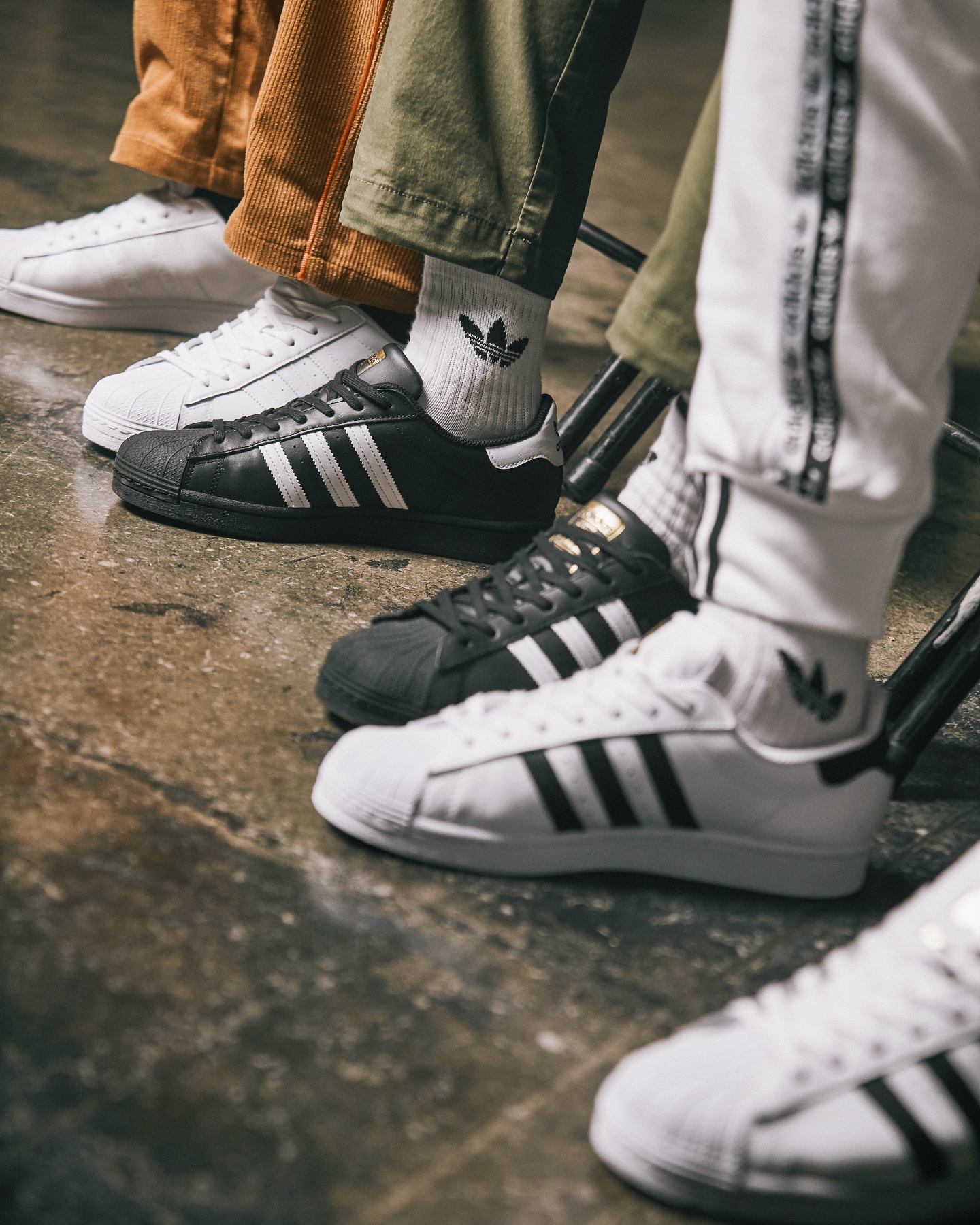
Photography: Rebecca Naen
Our focus and energy should be empowering the majority of people who want to do the right thing and are supporting of all kinds of people. I think what we don’t want to do is minimize peoples identities when they have been brave enough to come out. So whilst we don’t want it to be an issue in a negative way, we do want it to be an issue in a positive one. We have to celebrate their bravery and whatever elements of their identity they have decided to share with us.
What’s it been like working with adidas Originals’ on their Superstars campaign?
Working with Adidas has been incredible. The power of storytelling can never be underestimated, particularly when we look at shifting cultures and creating positive change. To create change you have to inspire, Adidas platforming incredible people doing amazing work in their field has the power to do just that, inspire action. Their commitment to Stonewall FC and LGBT inclusion in general has made me extremely proud to be a part of this campaign, and its brilliant to see it done with authenticity.
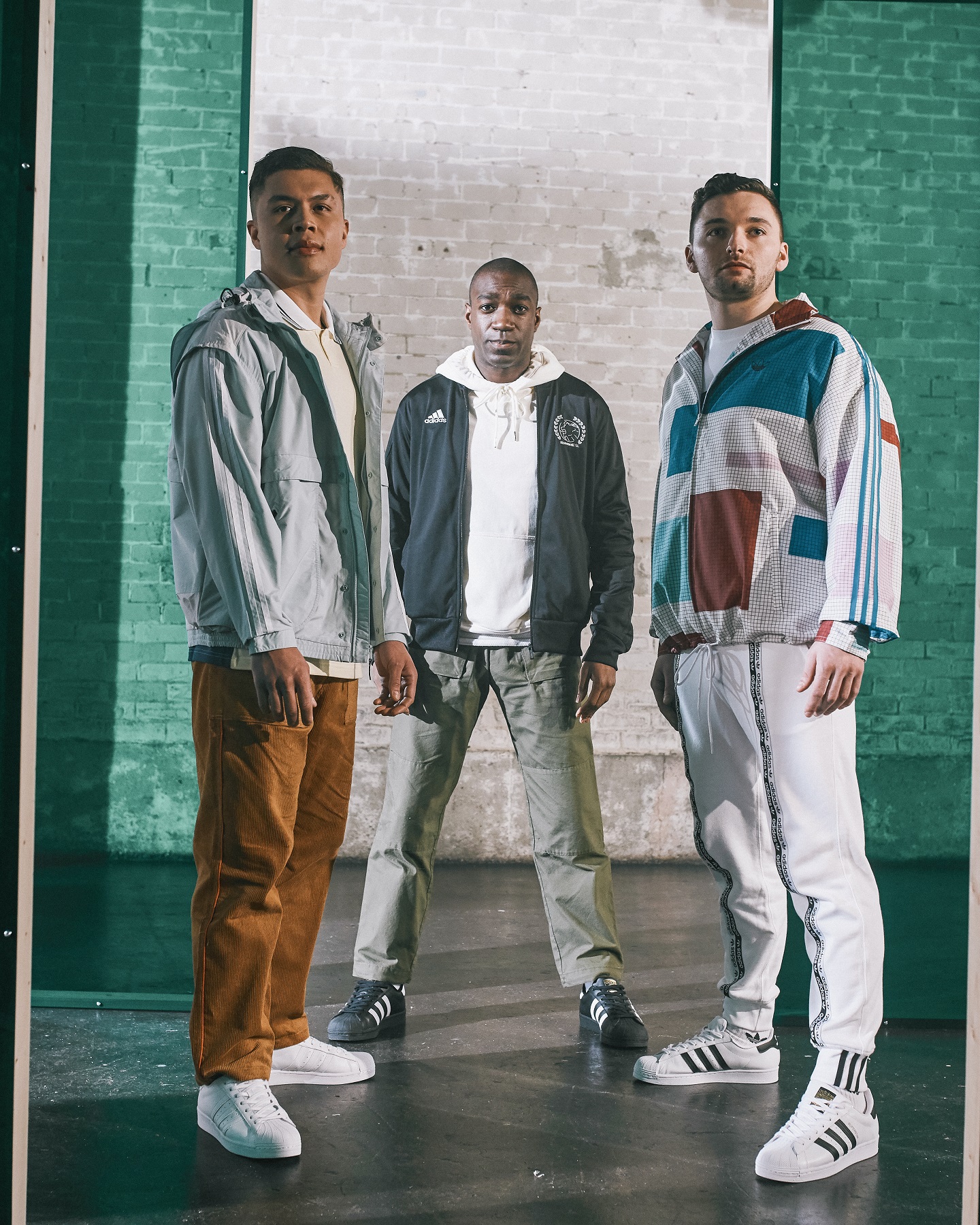
Photography: Rebecca Naen
What does the concept of ‘Change Is a Team Sport’ mean to you?
Change can’t be achieved by individuals or specific groups, we have to create a movement. Movements are about inspiring action and collaboration. Leaders, storytelling and game changes are crucial in achieving this. Change is a team sport means we must bring people together, even at times when we are divided.
Jehmeil Lemonius features in the adidas Originals Superstar campaign ‘Change Is A Team Sport’. adidas Originals Superstars are available now from adidas.co.uk/superstar.
